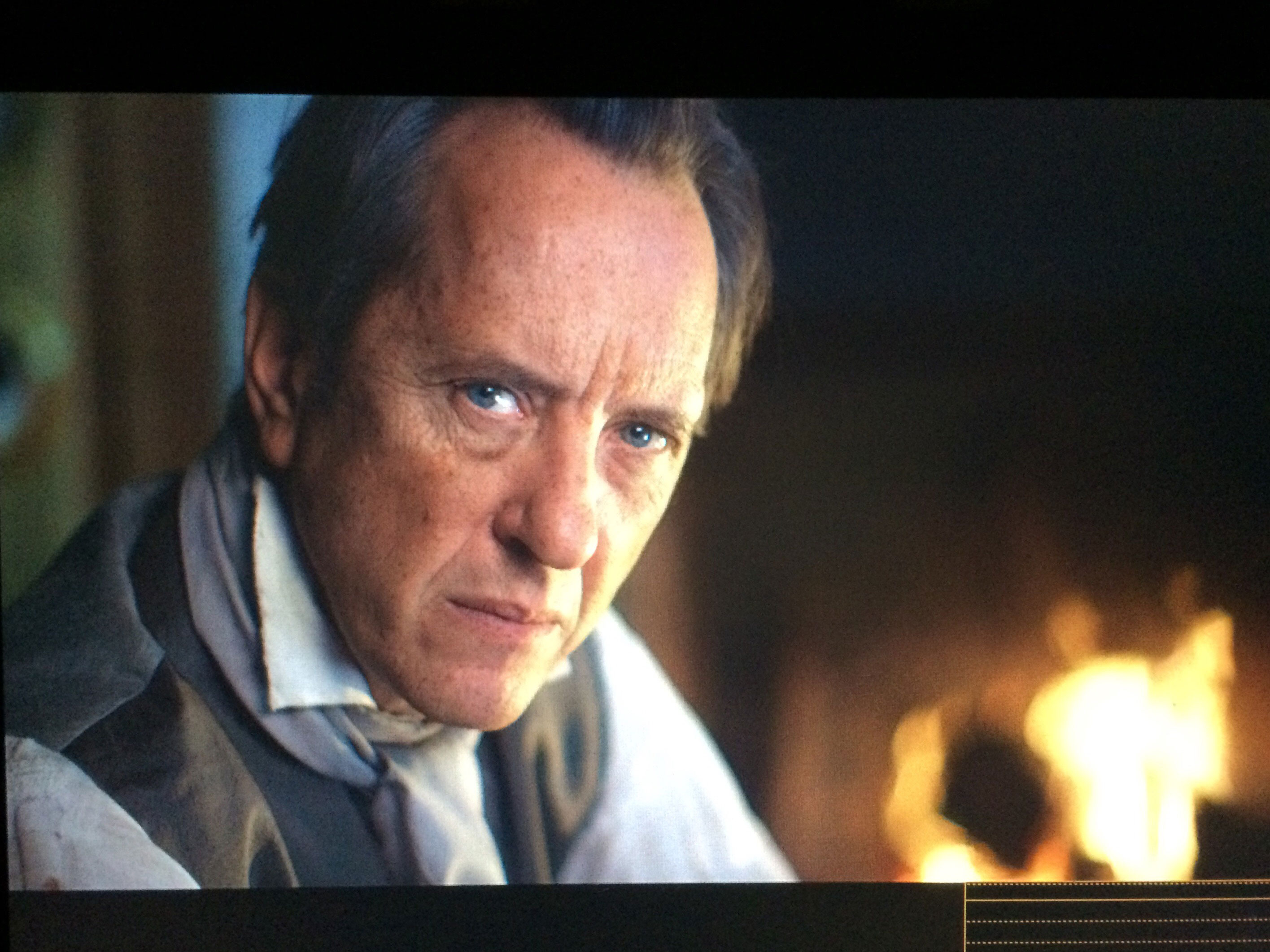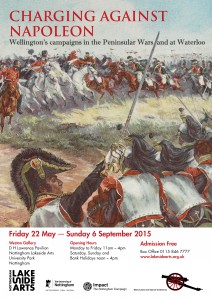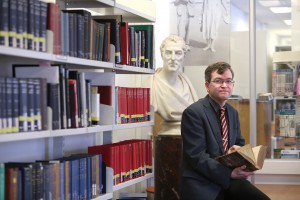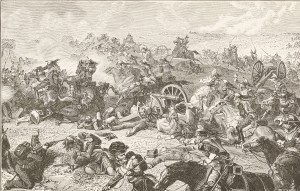
May 7, 2015, by Rob Ounsworth
Richard E Grant, the Iron Duke and me
The University’s Dr Richard Gaunt can be seen this Sunday on BBC Two talking about one of the most iconic Britons in history – the Duke of Wellington.
Revered as the victor of Waterloo, Wellington went on to twice serve as prime minister. As Richard, Associate Professor of History, explains on Wellington: The Iron Duke Unmasked, the soldier turned statesman was a contradictory figure, at once lionised and despised. The legendary general who defeated Napoleon and ended more than 20 years of war with France was also vilified as the steely embodiment (hence the Iron Duke) of resistance to the electoral reform movement that convulsed 19th-century England. It was pro-Reform Bill rioters, enraged by the arch-conservatism associated with Wellington’s ousted Tory government, who razed Nottingham Castle to the ground in 1831.
Richard’s contribution to the The Iron Duke Unmasked explores Wellington as a key figure in British political and electoral history. “Waterloo was a hugely significant event – it brought an end to wars with France that lasted a generation,” he says. “Napoleon was defeated by a European alliance, with Wellington as its military commander, and he became famous. After 1815, the European powers sought to restore the old order threatened by revolutionary and Napoleonic France, and Wellington’s public life and political beliefs reflected this. He is one of those key British figures – Churchill in war and peace springs to mind, Thatcher perhaps another – who was both lauded and despised during their time.”
Richard is looking forward to a busy summer after the BBC drama-documentary – in which Richard E Grant plays Wellington – is aired on Sunday. He is co-curator of Charging Against Napoleon: Wellington’s campaigns in the Peninsular Wars and at Waterloo, an exhibition which opens at Nottingham Lakeside Arts on Friday 22 May and runs until Sunday 6 September.
The exhibition marks the bicentenary of Waterloo using material held by Manuscripts and Special Collections. It tells how the legacy of the battle and Wellington’s influence resonated long after the guns fell silent and draws on the University’s rich archives, including the stories of the Nottinghamshire rank and file who fought in the Peninsular Wars and at Waterloo, and also of the aristocratic families of the county who had military and political links to Wellington.
To tie in with the exhibition in the Weston Gallery, a series of Waterloo-themed events are being held over the summer at University Park, including free public talks by visiting academics and a concert on 18 June – Waterloo Day – by the New Scorpion Band featuring folk songs and instrumental pieces from the period.
The programme concludes on 25 July with a Living History Day at Highfields Park, when the 5/60th Rifles re-enactment group will demonstrate the infantry tactics used at Waterloo.
“This is the first time Waterloo has been marked in this way,” says Richard. “Observance of June 18, Waterloo Day, declined after Wellington’s death in 1852 and when its centenary fell in 1915, a new conflict – also in Belgium – was obviously of more concern. So in a sense it feels we are treading new ground and can look at these events with a fresh perspective.”
For more about Charging Against Napoleon: Wellington’s campaigns in the Peninsular Wars and at Waterloo and to book for events associated with the exhibition click here
Wellington: The Iron Duke Unmasked, is on BBC Two on Sunday 10 May at 9pm and will later be available on BBC iPlayer
No comments yet, fill out a comment to be the first




Leave a Reply